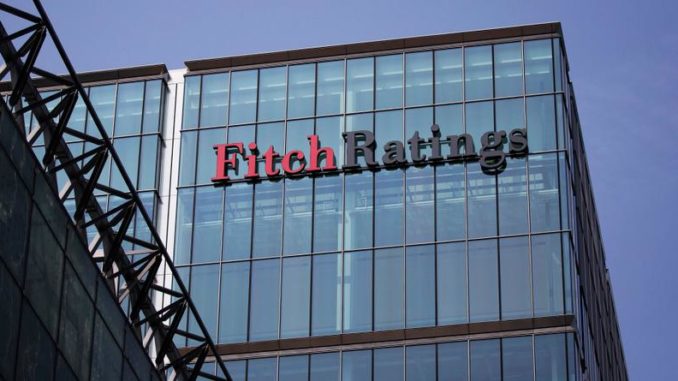The debt profile of Cross Rivers state is set to hit N800 billion as international rating agency, Fitch Ratings has assigned it a ‘B-’ Long-Term Foreign- and Local-Currency Issuer Default Ratings (IDRs) and a ‘AA-(nga)’ National Long-Term Rating. With a stable outlook.
Fitch in its ratings of the state pointed out the weak revenue generation and high expense of the state, saying its ‘b-’ Standalone Credit Profile (SCP) reflects manageable but rising debt, with some foreign-currency exposure. While the state has been able to increase its internally generated revenue over the years, Fitch said the ratings reflect Cross Rivers’ dependency on revenue transfers from the federal government.
“We apply a notch of asymmetric risk to highlight below-standard disclosure on debt details, including interest payments. We expect Cross River’s net Fitch-adjusted debt to significantly increase to around N880 billion in our rating case of lower oil-related transfers. The increased debt includes the depreciation of Cross River’s forex debt (50 per cent of adjusted debt at end-2023), under a scenario in which the NGN/USD exchange rate moves to N1,600/$-N1,800/$ and Fitch’s assumption of new borrowings to fund the state’s ambitious N0.6 trillion capex plan in the next five years.”
Cross River’s debt is made up of domestic debt with local counterparties and several facilities sponsored by the federal government (31% of adjusted debt). “We include contractors and pensions arrears (18 per cent) in our calculation of adjusted debt. Cross River’s external debt (50 per cent of adjusted debt) almost doubled in 2023 compared with 2022 due to the steep depreciation of the naira across 2023. External and intergovernmental debt is largely serviced by deductions from statutory allocation.”
Fitch pointed out Cross River’s weak liquidity as the state has no committed liquidity lines and domestic banks rated in the ‘B’ category tend to extend credit lines either with short maturities, or with backup from the federal government through direct deductions from statutory allocations for longer maturities.
“Cross River’s cash position has been volatile in the last five years. Emergency liquidity could come directly from the federal government, helping states meet liquidity shortfalls and fund payments of salaries and pensions.”
The rating agency also noted that Cross River’s revenue structure is influenced by its weak socioeconomic profile and reliance on transfers from the federal government, which can be volatile as they are dependent on hydrocarbons. Like all Nigerian states, Cross River has broad responsibilities and high spending needs. To develop the local economy and increase IGR, Cross River targets significant investments in infrastructures, partly funded with debt.
Cross River’s revenue robustness is influenced by its overall weak socio-economic profile and reliance on volatile transfers from the federal government. About 75 per cent of Cross River’s revenue is made up of federal allocated revenue, i.e. VAT and statutory transfers (the latter over half of operating revenue) that are highly dependent on the sale of hydrocarbons. IGR is about 20 per cent of total operating revenue, which is below the Nigerian states average, although Cross River has made some progress on IGR, as evidenced by a 11 per cent average increase in the last five years and 50 per cent year on year in 2023.
Fitch said Cross River’s revenue potential depends on its ability to broaden its tax base and enforce tax compliance. The main fiscal revenue is pay-as-you-earn taxes, on which Cross River cannot set the tax rate. Other IGR sources, including fees, tend to be irregular but Fitch considers they have upside potential, as demonstrated by 2023’s 86 per cent increase compared with 2022. Fitch views the ability to expand the tax base as challenged by Cross River’s large informal economy, which is widely based on agricultural activities, and the low income of its population.
